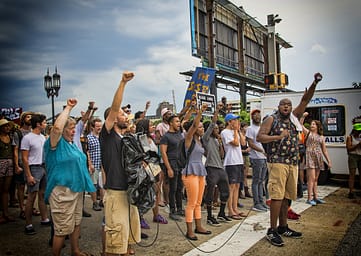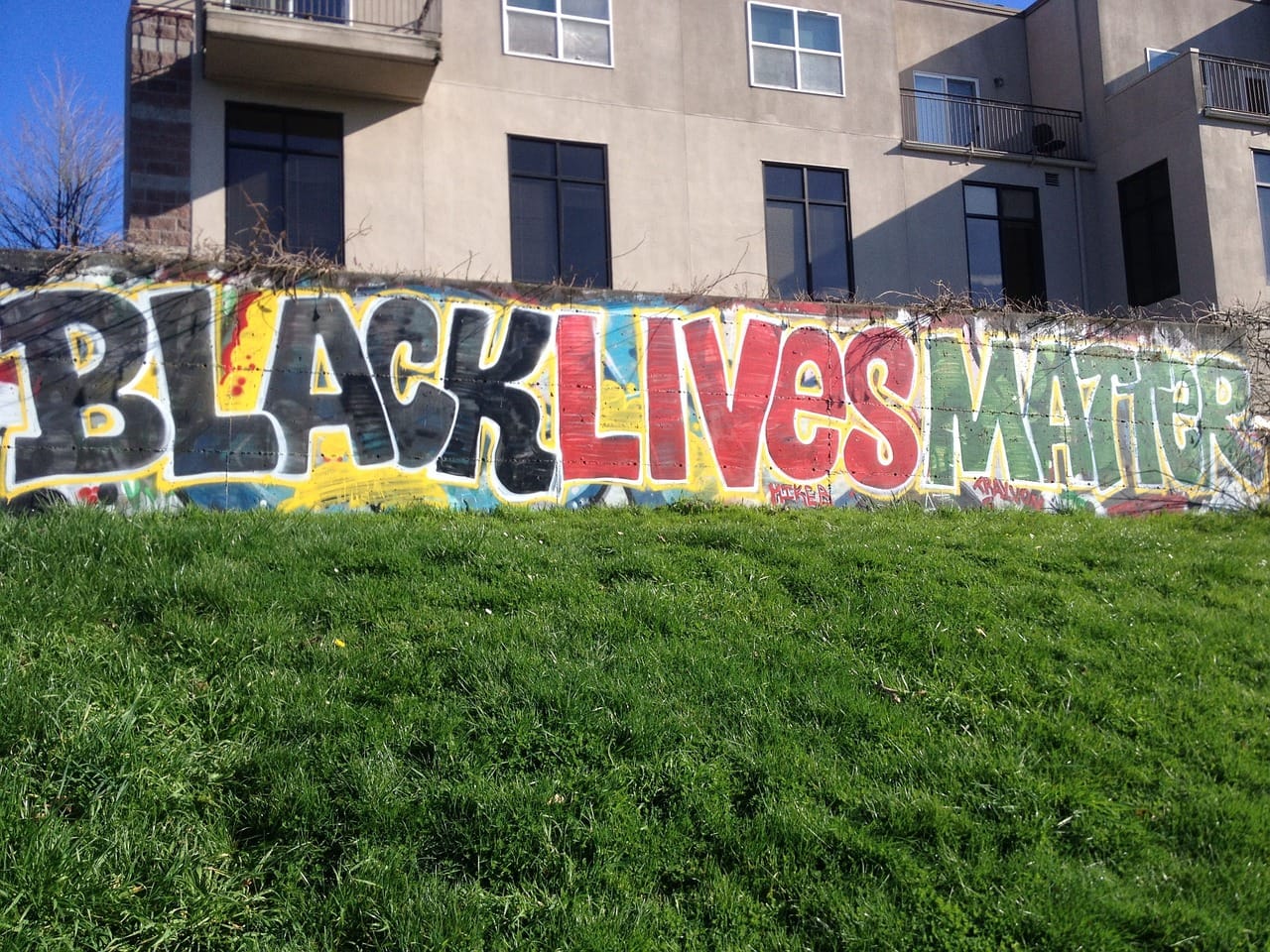[dropcap]In [/dropcap]the United States, racial profiling affects thousands of Americans every single day. Not many people think about what racial profiling is, some people think it doesn’t even think it exists or how it affects everyday lives, but you or anyone could have possibly done it. Racial profiling is the use of race or ethnicity as grounds for suspecting someone to committing an offense. According to American Civil Liberties Union, “Racial profiling is a nationwide problem. Stories have been reported across the country– not only by everyday citizens, but doctors, lawyers, judges, legislators, police/military officers, and celebrities”. Even though racial profiling is widespread, it should be stopped because of its negative effects on people and America.
So why does racial profiling affect most races or ethnicity?
According to Open Society Foundations ,”Unfair policing not only affects individuals, but also their families and entire communities, shaping a view of police as biased and untrustworthy. It generates reluctance to cooperate with police officers, which undermines efficiency in profound ways”. Also in an article by the American Civil Liberties Union, it talks about how often it is to be stopped without a reason is common especially if you are African American and how “on our nation’s highways today, police ostensibly looking for drug criminals routinely stop drivers based on the color of their skin. This practice is so common that the minority community has given it the derisive term, ‘driving while black or brown’ – a play on the real offense of ‘driving while intoxicated.” In an article by ABC News, it tells a story of a man named, Frank Jude and how he was invited to a police officer’s party and left savagely beaten.
.
“It looked like a bomb had went off in Frank’s face,” said Kirsten Antonissen, who accompanied him to the party.
Jude’s pants were also cut off his body. He says he was kicked repeatedly in the groin, his fingers were yanked back and a pen was jammed in both of his ears.
“I thought he was going to die, I really did. The beating that he took, I cannot believe that anybody would have lived through that,” Antonissen said.
Jude says a mob of off-duty police officers from the party was responsible for his injuries. Antonissen says when she called 911 for help, the officers who arrived joined in.
They both say that when their group arrived at the party, everyone else they saw was white. Antonissen is also white, but Jude is a very light-skinned African-American”.
To further explain the story in my own words, Jude had been invited to go to a party with his friend and felt uncomfortable when he arrived with all the guests treating him poorly. Then one of the police noticed his badge was missing and immediately blamed Frank Jude, who was innocent and did not steal the police’s badge. So they aggressively beat him to the point of almost torture and also got cut in the face with a knife and stripped naked, was hospitalized for almost 3 days and spent the next 2 weeks recovering physically and mentally. Four officers were involved in the beating, the federal grand jury acquitted three officers and the fourth one was not.
In a more everyday situation it is more common than you think, especially students in high school or college, “This spring, the University of Wisconsin-Madison campus has been the site of several heinous acts of racism: An Asian student was spat on and a black student received a note with obscenities and racial slurs slipped under her door.
Photo by Pixabay
Being black in everyday society is different and some tend to be more cautious because “the everyday experience of a person of color generally doesn’t involve being spat on. But it’s often shaped by race in more ways than a white person might guess”. Most white people have misconceptions of racial profiling or discrimination because they do not experience it often enough an example is from a white female college professor said, “A black friend told me, for example, that she selects her clothes so that she doesn’t look threatening to white people”. No one notices the everyday discrimination because it is usually not brought up in conversation, this is why we hear stories that deal with larger issues such as the Black Lives Matter protesting.
Is Black Lives Matter protesting making a difference?
In a news article by The Hill does an good job of summing up the main goal of the Black Lives Matter campaign Monte Frank wrote, “The Black Lives Matter movement should be considered by all Americans as a recognition and a challenge. We should recognize the effects of hundreds of years of discrimination. We should challenge our government, our institutions, our police forces, our criminal justice system, our corporations, and our schools and universities to constantly examine their policies to promote diversity and inclusion, to call out discrimination and reduce implicit bias. Implicit bias training must be part of police training”. The point of Black Lives Matter is to spread awareness of racial profiling against police brutality, not to say that other races do not matter because they all do, but more are targeted than others. All in all I strongly agree the “black Lives Matter movement and then work together to combat racism wherever it exists and promote dignity, justice and respect for everyone”.

Photo by Pixabay
So, why do people think racial profiling and discrimination is good?
On the opposing side, some people think racial profiling or discrimination is helpful and is innate in everyone. In an article by Opposing Views, Chrysler Summer wrote, “Our racism is so entrenched that even the victims of such racism have swallowed the thinking. As a result, many blacks, and others, have adopted the belief that being black is bad and being white is good”. In most cases this is true and is why most people discriminate. My view on this type of thinking is that mostly why do people think racial profiling is a good thing and should be used more often even though most statistics show that African American or Muslim are not mostly the type to be criminals.
While the most common race that is racially profiled is Black or African-Americans, Muslims are also very commonly profiled.
Even though African Americans are most commonly profilied Muslims also have been major targets of racial profiling. Muslim does not always mean Arab, but racism is ruining their safety and quality of life and making them an “identity marker” by their middle eastern appearance and the headscarf or hijab. One of the biggest things in history that has made a huge impact on our perception of Muslims is the terrorist attacks of 9/11. Quartz News did an article about Muslims being racially profiled and one thing that had stood out to me was this short story of a Muslim on a plane the article says, “Yet again, a Muslim passenger was removed from a flight because his presence set off alarm bells. To be clear, the young man in question was not flagged by the US Transportation Security Administration (TSA), which is tasked with keeping our skies safe. Khairuldeen Makhzoomi, a Iraqi asylee and student at the University of California, Berkeley, was reported by a fellow passenger. Makhzoomi’s crime? Speaking Arabic in a way that was ‘perceived to be threatening,’ according to a statement by Southwest Airlines”. There have been plenty of stories of Muslims getting kicked off planes because the cannot speak English very well for trying translate for someone or just for being on the plane and people being “uncomfortable”.
So why do cops still profile?
Overall, racial profiling is ineffective and causes resentment which in the long run, means that usually tears apart the unity and the feeling of being safe and makes people feel like they are constantly under suspicion with certain people or in certain areas. Even though racial profiling happens everyday nobody does anything to stop it which I believe people should stand up about racial profiling for it to end. A Reason magazine survey showed 70 percent disapproved police stopping pedestrians or drivers because of their race or ethnic background. Most Americans disagree with racial profiling but I believe it should be stopped or reported to say the least, but you can’t manage what you don’t measure.
Featured Image by Pixabay






Mackenzie
This topic is something that a lot of people feel uncomfortable talking about and I think you did an amazing job presenting it. Not all people are aware of the profiling that happens in everyday life and I think that it is time that people are mature and sensitive about this topic because it is not a joke. This is a great blog post, well done!
Joey
I really think this is a topic that everybody should look into a bit more. I furthermore believe this post does a great job of introducing and shining the light on profiling . This blog topic is great and I would like to say thank you for sharing. I totally agree with you.